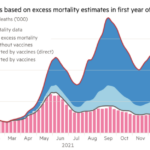On November 5th as the US elections results were being announced the Caribbean watched, knowing that the results would have significant implications for our future. Of course, ‘if America coughs, the Caribbean catches the cold.’
But, as it was clear that Donald Trump had won the US Presidency, Caribbean people now started to question what it would mean for us and the stability or instability of the global international order.
As such, what will Trump 2.0 mean for the Caribbean?
Climate Change
While we don’t know for certain what policies the Trump administration will pursue internally on climate change in light of increased climate-related disasters across the US, and the fact that the Inflation Reduction Act has continued to pour over $390 billion into EVs, and other climate resilient technologies, which have created millions of jobs and other benefits to Republican affiliated states. These may all disappear if he repeals sections of the Act. However, If this has impacts during the midterm elections, he may not be as keen to repeal.
But his global actions will have disastrous impacts for the Caribbean, particularly since he has promised to withdraw the US again from the Paris Agreement, and possibly to withdraw from the UNFCCC, which is the multilateral framework for the reduction of CO2 in the world, and which also provides financial and technical assistance for developing countries like the Caribbean to mitigate climate change through a shift to renewable energy, and to adapt to its impacts and respond to the loss and damage it creates.
When these are coupled with his denial of the existence of climate change as a ‘hoax’, and his intention to ‘drill baby bill’ and ‘frack, frack, frack’, like never before, increasing the fossil fuel stock of the US, which some have suggested would not only roll back the gains by President Biden, but contribute an estimated 4 billion tons of additional CO2 emissions by 2030 and 25 billion tons by 2050, then these increases would significantly increase the vulnerability of the Caribbean to extreme weather events, more ferocious hurricanes, devastating droughts and floods, and deadly heatwaves, which can continue to plummet our GDPs, increase poverty, destroy infrastructure and roll back any gains made in our climate recovery processes.
As we know, our Caribbean countries are low-lying and heavily exposed to rising sea levels, which erodes coastlines, and displaces populations and industries. Any withdrawal from the Paris Agreement, which is meant to reduce greenhouse gases (GHGs), will increase the emissions of these gases, thereby exacerbating the climate crisis and affecting our ability to protect lives and livelihoods. Of course, it is a no brainer that with warmer ocean temperatures that increase the intensity and ferocity of our hurricanes, the US exit will increase the levels of financial and technical support needed to bolster the climate recovery effort. Such an exit is even more egregious when you add the fact that the US, together with the other developed countries, are the ones that have created this existential climate crisis. The Caribbean may unfortunately be in for some hotter months, longer droughts and more devastating floods.
What is needed now is not an increase in GHGs, which fuels the extreme weather patterns, which Trump promises, but a radical decarbonisation of the US and other global economies. Caribbean leaders should therefore be prepared to dialogue with the president on these critical issues, but also to engage other European counterparts to step up and not bend over backwards to try and mould the climate regime around the vagaries of the US political currents.
These countries, together with China, must now play leading roles in reducing the climate crisis. This is not to suggest however that when the US exits, the climate movement is ‘trumped’, but it is only morally appropriate that due to their overwhelming historical and current contributions to global greenhouse gas emissions, that the US contribute towards reducing the effects on developing countries. Additionally, they must meet their financial obligation, not just to the USD$100 billion per annum that was promised from 2020 by developed countries, but to a higher New Collective Quantified Goal (NCQG) on Climate Finance. It is one thing to withdraw from the Paris Agreement, like Trump did during his first presidency, but it is another thing entirely to commit to increasing greenhouse gas emissions by expanding oil and gas exploration, given the severe impacts that Caribbean and other SIDS are already experiencing from the climate crisis.
Immigration
Trump’s immigration policy, according to him, would see the largest domestic deportation operation in human history of millions of illegal immigrants.
For the Caribbean, and Haiti in particular, this is troubling, because Trump’s inward-looking policies will devastatingly affect all who flee from war, climate crises, strife, political upheavals and the collapse of their states in search for a better life or the American dream, which has sustained the economic prosperity of America. This use of excessive force against already vulnerable and marginalised populations is testament of Trump’s disregard for human dignity and rights.
Of course, it is easy for us to sit in comfort and say that ‘they should enter legally now or that they should return to their countries.’ That is a privileged position as our countries are not facing the life-threatening issues that Haiti and others do, requiring individuals to flee, as a condition of survival. Who feels it knows it!
But have we for one moment considered that it is also a global responsibility to ensure integration of displaced peoples, in tandem with our humanitarian and civil rights requirements, particularly in circumstances where the US has also contributed towards this destabilisation and has an opportunity to cure these wrongs? At least in Haiti’s case for certain. But, Trump may only compound the problem, making the work of the Expert Group more difficult, if he refuses to assist, but also if he increases his Haitian animus. Remember his eating the animals’ comments, and how they were poisoning the blood of America, ignoring the diversity of America.
What is even more certain is that Trump may not provide support for the improvement of the Haitian state, such that migration is an option, and not a necessity.
It will also now become almost impossible to gain a legal path to citizenship, as even those who have become citizens by marrying an American citizen or their child is a birther are at risk of deportation, thereby further decreasing their quality of lives causing migration issues for the Caribbean.
The implications for the Caribbean are a general sentiment of fear of migration and lack of belonging as they search for a better life, and a concomitant fear by those who voted for ‘closed borders’ of all who are not of the blood of America i.e., also Caribbean peoples. But, more directly, if there are Caribbean peoples who are ‘illegal immigrants’, working and providing remittances to their families back home, one can potentially see a massive reduction in the country’s remittances income, which contribute towards healthcare, education among other areas. The reduction will exacerbate poverty, which has wider economic impacts for the Caribbean economy. Further, there may be deeper fiscal and political strains on other Caribbean countries who would not be able to handle this sudden migration flows.
The Caribbean region as a whole through their political leaders need to engage the President on the abovementioned.
Foreign Aid
In Trump 2.0, particularly with his isolationist ‘America First’ philosophy, there may be less pushback to aid cuts as there were in Trump 1.0, and it could mean that key developmental programmes and agencies within the Caribbean could receive less funding, particularly in areas that are not favourable to the Trump administration. It means that the Caribbean should now utilise the opportunity to forge new relationships with new nations, as opposed to confining itself to looking North.
Trade
Trump will seek to reduce the US Trade deficit, ensuring manufacturing jobs stay within the US, and there’s a baseline global tariff for imports. That has the potential to affect Caribbean exports to the US, making it more difficult through stricter trade regulations. Should there also be a modification of the CBI, which provides certain duty-free access to the US market, in favour of US production, it could also reduce the competitive advantage of Caribbean goods in US markets. But, recognising the large trade deficit with the US, the Caribbean poses no real threat to US jobs, and its beneficial nature to US industry might prove helpful to its continuation.
In the end, Caribbean leaders and people should never see the election of Donald Trump as far removed from impacting the Caribbean region but heed the words of Rudder when he said that they’re trying to pass all laws to spoil our beauty, but in the end we shall prevail. We must take a side or be lost in the rubble, in a divided world that don’t need islands no more. Are we doomed forever to be at somebody’s mercy, little keys can open up mighty doors. Rally!
Rahym Augustin-Joseph is the 2025 Commonwealth Caribbean Rhodes Scholar. He is a recent political science graduate from the UWI Cave Hill Campus and an aspiring attorney-at-law. He can be reached via
rahymrjoseph9@ gmail.com
The post What Trump 2.0 Could Mean for the Caribbean Region appeared first on Barbados Today.


